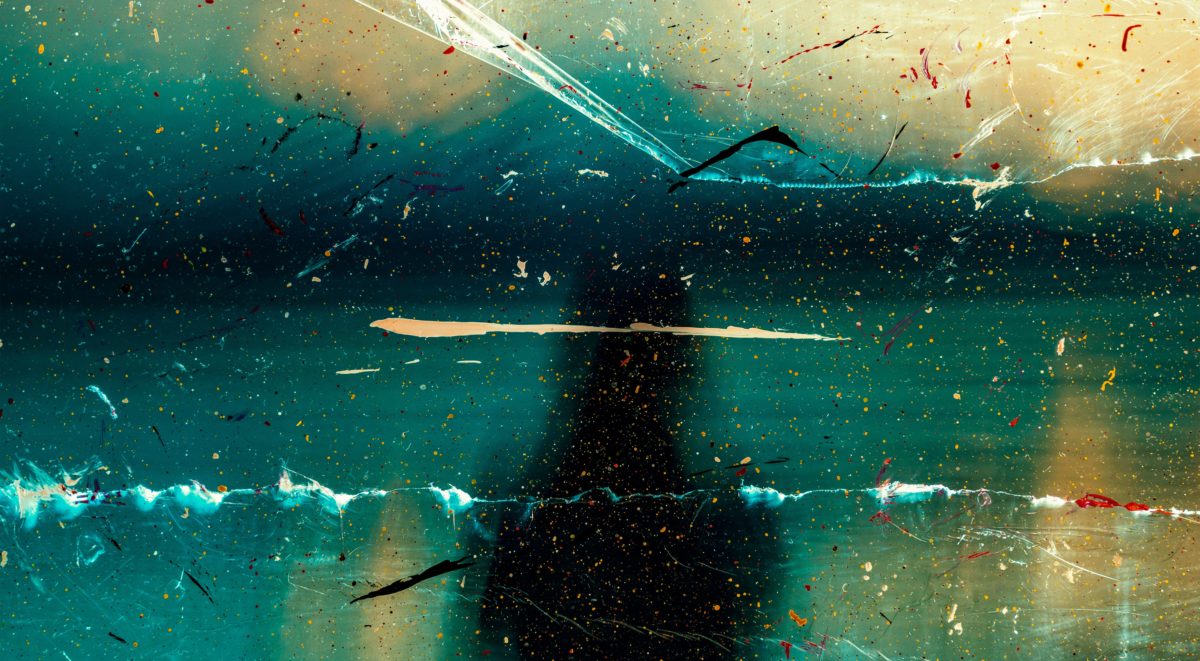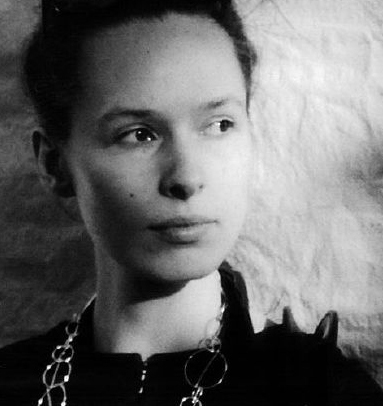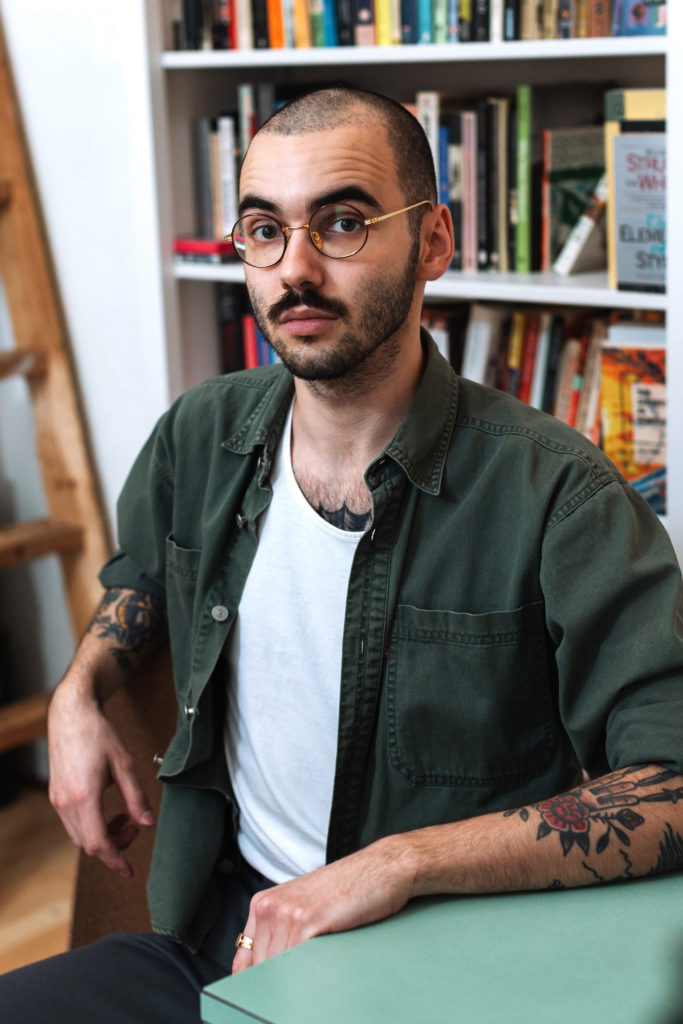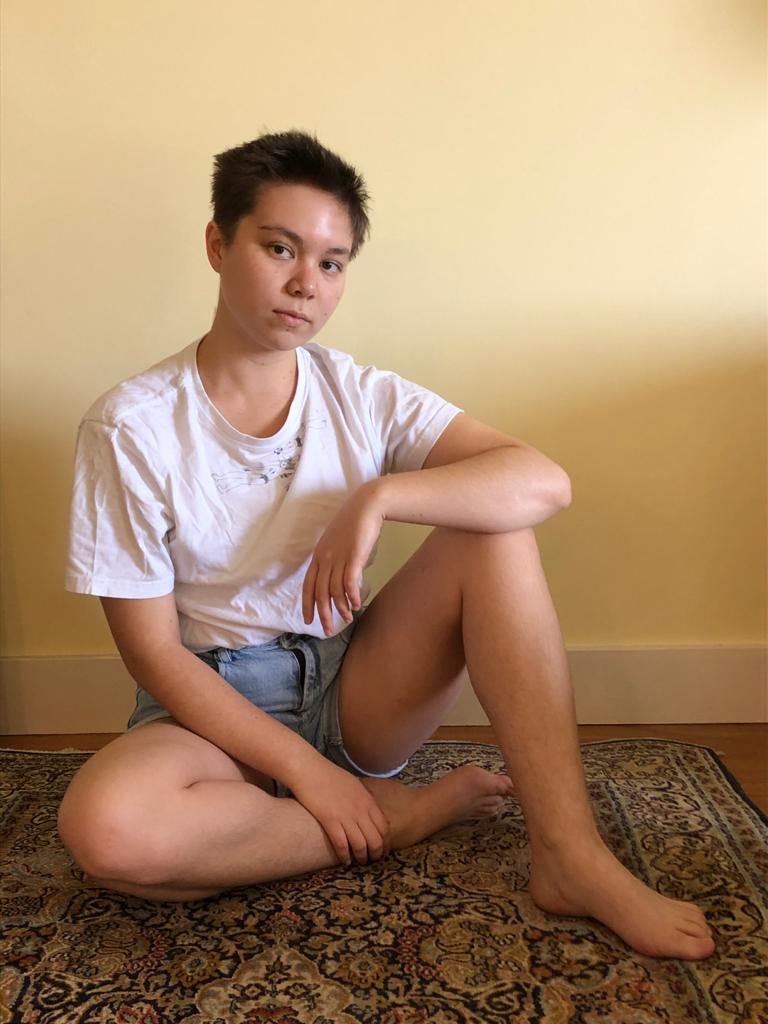
Interview by Molly Cross-Blanchard
Have you ever thought, “I wonder what a prize-winning poet thinks of depression-era cooking, the Saw movie franchise, and capybaras?” Look no further, friends! PRISM got to know the winners of the 2019 Pacific Spirit Poetry Prize, as chosen by Katherena Vermette. Buy the SPRAWL issue or subscribe now to read these incredible pieces.
Grand Prize
Colleen Baran – “The Spring of Grade Nine”

Can you tell us a little about the process of writing your prize-winning poem?
I can only sit and stand for short periods of time, so, to work around that, I write in bed with a small tablet propped up on my chest. To minimise movement, I pick and peck, typing one letter at a time. It’s much quicker than it sounds.
When a new idea comes, I will write until there is something I want to change—then I’ll copy and paste it and keep going with the changes—so I’ll work this way with ever longer drafts copied, copied, copied until I have anywhere from 10-20-30-40+ first tries.
I just looked in my files—and for this poem I counted 15 first tries.
From this, I took a favorite version and edited it. I counted out another 15 versions—each fairly similar—with just a word or two changed in each. Most versions were just to get the flow right and to make sure the story worked both horizontally and vertically.
This was one of the first three-column poems I was happy with. It’s quite a personal series—both in terms of form and content.
Beyond writing, what are your passions?
Art—mostly modern, but it ranges
Good design
Photography
Jewellery—contemporary art jewellery in particular (I was self employed as a jeweller for years. I do hope to get back to it.)
Books—the library is one of my primary forms of entertainment
Do you have a favourite word? Or a least favourite word? What is it and why do you love/despise it?
I keep lists of favourite words. I often write down words that appeal to me—or circle them in books (in pencil). I love palindromes and homonyms in particular. My current favorite palindromic phrase is, in Latin,
“In girum imus nocte et consumimur igni.”
I’ve seen it translated in various ways—
We enter the circle after midnight and are consumed by the fire.
We go into the circle by night. We are consumed by fire.
We go round and round in the night and are consumed by fire.
I don’t speak Latin, so I can’t say which one/if one is more accurate. Though its meaning, like everything else, seems to have shifted now? It feels more ominous—but—still a good one.
What makes you nostalgic?
People? The idea of other people?
Other than that, there’s a YouTube channel—Great Depression Cooking—that makes me nostalgic.
In the videos, Clara, a 90+-year-old woman, cooks depression-era meals and reminisces about her youth. I love her enthusiasm for Pasta with Peas! & hearing about her brother, her father, her mom. She reminds me of my grandmother, my Nana, who I sometimes lived with when I was little.
Clara makes a baked apple dish that’s similar to one that Nana made.
Clara’s Baked Apple is a cored apple filled with white sugar, cinnamon, and butter. Nana’s baked apple was also filled with lots of butter, (brown) sugar, and cinnamon—but it was then wrapped in a sheet of dough. I’d watch her bake it, and the way the ingredients transformed in the oven was magical to my 3/4/5-year-old self. The dough stiffening and turning golden, the apple softening, the sugar crystalizing, the butter melting into everything, and the smell of the cinnamon filling the room. She didn’t make it often, but I can still remember when she did.
I haven’t had one of those apples since I was a kid, but the memory makes my chest ache a little.
First Runner-Up
Cody Caetano – “why the sex addict is a porkchop preteNDN”

Photograph by Neil Rimmer
What’s the first story or poem you remember writing, and how does it relate to your current work?
I wrote a poem in 2016 called “#cnftweet.” I named the poem after Creative Nonfiction’s Tiny Truths contest, where the editors picked the best tweets featuring that hashtag to republish in print at the end of each issue. Sure enough, “#cnftweet” found a home in the porkchop poem. I never tweeted it, but never threw it away!
Tell us something you think people would be surprised to learn about you.
I got hooked on the Saw franchise during puberty. I often binged the movies on weekends, rotating between the commentaries until I knew the directors and writers and producers, their processes, mistakes, and Easter eggs. I loved “Hello Zep,” the elaborate traps and their hocus pocus physics, pouring over the Wikipedia entries at the public library, Jigsaw’s hoarse dialogue, the filters on the footage, and of course the sweet twist endings. Everything! I couldn’t afford the memorabilia and never did find a Billy mask for Halloween, but grabbing the newest sequel in a Rogers store bucket of DVDs or catching a trailer on TV would make my week. Sure, they are junk movies, like so bad-they’re-good junk movies. But they also shaped my sensibilities and imagination and kept me company, and for that they have a special place in my heart.
If you could change one thing about the writing and publishing industry, what would it be?
More people holding the fort up than standing around it.
What’s the last thing you read that moved you?
Text from my partner: “I need bathroom.”
In your WILDEST dreams, what does your life look like?
I’m having wild dreams nightly, thanks to the virus. There are dreams featuring knockoff Leatherfaces and asteroid goodbyes, but also dreams about big crowds and fun parties. Just had one about my high school but it is run by Justin Trudeau and Michael Crummey and Margaret Atwood. Another recent dream took place in an arena packed with Ride Cycle Club spin bike stans, and in the middle is this bright white light powered by the bikes. While everybody else is spinning hard for the light, my shoes won’t clip into the bike (like when you try to punch someone but can’t) and it sends my helmet(?) flying into the rows of bikers ahead of mine and a nearby instructor asks me to get off and go home. My brother tells me dreams about the end of the world signal a change in perspective.
Second Runner-Up
Lou Garcia-Dolnick – “what’s your body politik?”

Do you have any “vices”? What’s the relationship between your vices and your writing?
Far too many to mention! I hold a great deal of anxiety (probably quite pathologically) around navigating my own and others’ boundaries, the capaciousness of relationships for certain kinds of love and affection, living and writing vis-à-vis social, ideological, political boundaries according to whiteness. The relationship diasporic/non-white writing diagrams with its own frontiers and latitudes, I think, often manifests very direct connections to that quandary, though, more personally, I’m constantly negotiating my own privilege to hold the reader in certain kinds of grief. What do I owe others? What do I owe myself? An ouroboros of worry.
Tell us about a time you felt loved.
Last year in October, in a very different world, I met some of the gentlest, kindest, most loving people at the Banff Centre’s Emerging Writers Intensive. I can’t do justice to the ethic and integrity of care we held each other in, which was so generous and expansive, though Alexander Chee puts it well in After Peter: “all of those works,” in Chee, the work of a dead artist, though here, the work and words of my friends, “are the trail left behind, a path across time, left like the sun leaves gold on the sea: you can see it but you can’t ever pick it up.” You have to hold that love very delicately.
Is there a question you wish you were asked more? What is it, and what would your answer be?
I think I’d like to be asked more often how I feel about things. Not necessarily about traumas, intimate histories etc., though that’s also incredibly important, but more about day-to-day mundanities; events, happenings, food, music, movies, snacks. There’s a particular way that taking the time to care about what people have to offer stripped of predicating agendas/contexts (i.e. that we should use our shared time only to talk about my life, your life, things that constellate around us) that breathes so much space into conversation, and relationships.
I think my answer would more often be I don’t know, with more contemplative silences.
What are you excited about or looking forward to right now?
Where possible, I’m looking forward to clicking into the rhythms of isolation, reacquainting myself, slowly, with my body without proximity to others, having the time to make my bed each morning, taking long walks through empty streets and reading each page in every book in the tall, tall stack of books on my bedside table. I’m especially looking forward to staring at things for ages and writing long emails to friends.
I’m sitting on top of a nest of first and second drafts, the most tactile place to be as a poet, I think. So many wonderful questions to be had here: where are these poems malleable? How do they ontologise the world? Where are their centres of gravity?
My friend Sanna recently sent me Sandra Beasley’s Unit of Measure, a poem about capybaras. I will never not be excited to find new poems about capybaras as long as I live!
Colleen Baran is a Canadian artist, designer, and writer. Baran’s artwork has exhibited in museums and galleries in eleven countries and been published in a few more. Her poems and visual poems have appeared or are forthcoming in jubilat, PRISM, Pleiades, Always Crashing, Berkeley Poetry Review, Room, and the anthology Best Canadian Poetry 2019.
Cody Caetano’s work has appeared in Beatroute, Bad Nudes, Hart House Review, and elsewhere. His debut chapbook, “Pleasure Dome Poems”, was released by Knife/Fork/Book in 2019. He has an MA in English in the field of creative writing from the University of Toronto, where he wrote a memoir under the mentorship of Lee Maracle, called Half-bads in White Regalia. Cody is currently represented by Stephanie Sinclair of the Transatlantic Agency. He is a member of Pinaymootang First Nation and the Bloorcourt neighbourhood in Toronto, the latter of which is where he currently lives with his two cats. Find him at @cody_caetano.
Lou Garcia-Dolnik is a mixed-race Filipinx writer and editor working on unceded Gadigal land. A poetry editor for Voiceworks and alumnus of the Banff Centre’s Emerging Writers Intensive, they have been awarded third place in PRISM international‘s Pacific Spirit Poetry Prize and second place in Overland‘s Judith Wright Poetry Prize. They have work published in or forthcoming with Overland, PRISM international, Rabbit Poetry Journal, Scum Mag, and Voiceworks, among others.